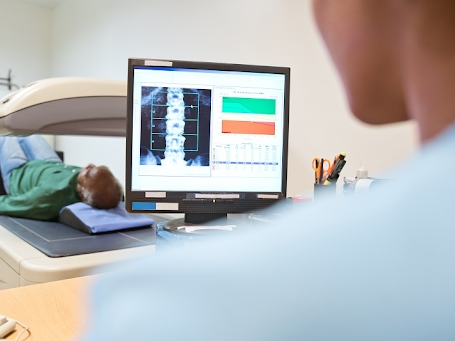Health & Fitness
What is a Bone Density Test?
The simplicity and importance of bone-density tests in early detection and long-term health

This is a paid post contributed by a Patch Community Partner. The views expressed in this post are the author's own, and the information presented has not been verified by Patch.
Did you know reduced bone density increases the risk of osteoporosis, characterized by fragile bones prone to fractures? Regular bone-density testing is essential, especially for high-risk groups like women aged 65 and above, and those aged 50–64 with specific risk factors. Nader Bakhos, M.D. at Riverview Medical Center underscores the simplicity and importance of these tests in early detection and long-term health.
Dr. Bakhos explains that DEXA (Dual-energy X-ray absorptiometry) scans focus on the hips and spine due to their higher risk of bone density-related injuries, although other areas like forearms, hands, and feet can also be assessed using smaller, portable scanners.
The primary bone-density test, known as DEXA scans, employs X-ray technology to measure calcium and mineral levels in the bones. Typically conducted in radiology offices, read the full article to see what the procedure involves!
This post is an advertorial piece contributed by a Patch Community Partner, a local brand partner. To learn more, click here.